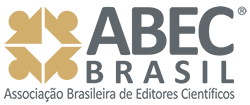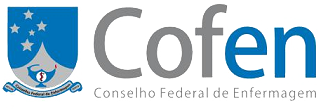Resumo (abstract):
This article aims to present the Global Initiative for Childhood Cancer and the Practice of Pediatric Oncology Nursing in Latin America and the Caribbean through the technical document “The practice of pediatric oncology nursing in Latin America and the Caribbean” as an integral part of the CureAll Framework: WHO Global Initiative for Childhood Cancer of the World Health Organization and the Pan American Health Organization. Including childhood cancer in the Public Health priority agenda is feasible, effective and sustainable, as it offers an opportunity to catalyze progress in cancer control, to save lives and reduce suffering, and especially, for success in the Noncommunicable Diseases agenda. In addition, investing in children and adolescents, as well as strengthening actions and programs for childhood cancer, are strategic targets for governments with the capacity to save hundreds of thousands of lives each year at a low per capita cost. In addition, to the socioeconomic rationale, cancer in children and adolescents deserves to be highlighted as a matter of equity, human rights and social justice.
Palavras-chave (keywords):
Neoplasms; Oncology Nursing; Pediatric Nursing; Latin America.
Ler versão inglês (english version)
Conteúdo (article):
Global Initiative for Childhood Cancer and the Practice of Pediatric Oncology Nursing in Latin America and the Caribbean
Iniciativa Global para o Câncer Infantojuvenil e a Prática de Enfermagem Pediátrica Oncológica na América Latina e no Caribe
Obra: Organización Panamericana de la Salud. La práctica de la enfermería oncológica pediátrica en América Latina y el Caribe. Washington, D.C.: OPS; 2022. ISBN: 978-92-75-32674-9 (versión impresa). Disponible en: https://doi.org/10.37774/9789275326732
Autores:
Regina Aparecida Garcia de Lima1 (RN., CPN., Ph.D in Nursing). ORCID: https://orcid.org/0000-0002-0611-5621
Edmara Bazoni Soares Maia2 (RN., CPN., Ph.D in Nursing). ORCID: https://orcid.org/0000-0003-2996-6936
Luís Carlos Lopes-Júnior3 (RN., OCN., Ph.D in Science). ORCID: https://orcid.org/0000-0002-2424-6510
ABSTRACT
This article aims to present the Global Initiative for Childhood Cancer and the Practice of Pediatric Oncology Nursing in Latin America and the Caribbean through the technical document “La práctica de la enfermería oncológica pediátrica en América Latina y el Caribe” as an integral part of the CureAll Framework: WHO Global Iniciative for Childhood Cancer from the World Health Organization (WHO) and the Pan-American Health Organization (PAHO). Including childhood cancer on the priority agenda of Collective Health is feasible, effective, and sustainable in order to save lives and diminish suffering and, above all, for the success of the Noncommunicable Diseases agenda. In addition, investment in children and adolescents, as well as the strengthening of actions and childhood cancer programs, are strategic targets for governments with the capacity to save hundreds of lives each year at a low cost per capita. Beyond the socioeconomic justification, childhood cancer deserves the spotlight as a question of equity, human rights, and social justice.
Key words: Neoplasia; Oncology Nursing; Pediatric Nursing; Latin America.
Including childhood cancer on the priority agenda of Collective Health is feasible, effective, and sustainable in order to save lives and diminish suffering and, above all, for the success of the Noncommunicable Diseases and Complications (NCDC) agenda. In addition, investment in children and adolescents, as well as the strengthening of actions and childhood cancer programs, are strategic targets for governments with the capacity to save hundreds of lives each year at a low cost per capita. Beyond the socioeconomic justification, childhood cancer deserves the spotlight as a question of equity, human rights, and social justice1.
Since 2017, The World Health Assembly (WHA) has approved the Cancer Prevention and Control Resolution in the Context of an Integrated Approach. In this context, the World Health Organization (WHO) and the International Agency for Research on Cancer (IARC) have collaborated with other international organizations and partners from the United Nations (UN) for the Global Initiative for Childhood Cancer to be launched, with the purpose of improving the situation of children and teenagers with cancer worldwide, seeking the best chances for survival, the possibility to live a full life, and, above all, to live with a dignified quality of life and die without suffering2.
In fact, the WHO’s Global Initiative calls on governments to accelerate the actions to achieve the specified goals in the Global Action Plan for the Prevention and Control of Noncommunicable Diseases and the UN 2030 Agenda for Sustainable Development, which encompasses that set forth in the 17 Sustainable Development Goals, including: health and wellbeing, the reduction of premature mortality caused by NCDC, the reduction of inequality, among others, all aligned with the principles of Universal Health Coverage. For instance, one of the goals set forth by this Global Initiative is the increase in survival rates for at least 60% of the population by 2030. Moreover, two key goals in this Initiative are: i) to increase the capacity of countries to provide high-quality services and ii) to increase the priority of childhood cancer at global, regional, and national levels2.
A technical package report – CureAll Framework: WHO Global Iniciative for Childhood Cancer, has been guiding countries during the implementation of this Global Initiative (World Health Organization, 2020). CureAll is the acronym used to identify the four main pillars of the Global Initiative: • C – Centers of Excellence: Centers of excellence and health networks with specialized service providers; • U – Universal Health Coverage: Comprehensive universal coverage and essential quality services; • R – Regiments for Management: Regiments and scripts for diagnoses and treatments, aimed at achieving personalized plans, which will aid in the providing of quality services through technologies and evidence-based molecularly targeted therapy; • E – Evaluation and Monitoring: Evaluation and monitoring, with robust information systems that guarantee an effective, high-quality implementation and constant improvement in the process. Additionally, the three cross-sectional facilitators of the Global Initiative are: • A – Advocacy; • L – Leveraged Financing; • L – Linked Policies/Governance2.
In this sense, the recent work entitled, “Scope of Pediatric Oncology Nursing Practice in Latin America and the Caribbean”, as part the CureAll Framework: WHO Global Iniciative for Childhood Cancer, launched in January 2023 by the Pan-American Health Organization (PAHO)/World Health Organization (PAHO/WHO), is the first of its kind to gather and systematize the recommendations to support nurses and pediatric oncology nurses from Latin America and the Caribbean in their work to care for children and teenagers with cancer, along with their families3.
Worldwide, cancer is one of the main causes of death in children and teenagers. Particularly in Latin America and the Caribbean, care for childhood cancer is heterogeneous, given that the health systems, health processes/management, and health results vary considerably among the different countries of the region4.
The present PAHO/WHO work is geared toward health managers, hospital managers, and oncology nurses, primarily nurses and nurses who are specialists in Pediatric Oncology, in an attempt to identify, systematize, and consolidate the available evidence regarding the scope of the practice of Pediatric Oncology Nursing in Latin America and the Caribbean in such a way as to incorporate this into clinical practice, education, and research3. In addition, it also aims to present the Essential Competencies for Pediatric Oncology Nursing Practice in Latin America and the Caribbean. To achieve this, the authors first drafted a scoping review to search for the best evidence for this practice5. The theoretical foundations for the systematization of the recommendation contained in the present work was the Care Centered on the Patient and the Family (CCPF, in Portuguese), an internationally renowned and widely used reference6,7, thus representing the theoretical framework that can facilitate the interlocution between the different realities of this practice. Also, as a theoretical basis, the Caring for Teenagers and Young Adults with Cancer: a Competence and Career Framework for Nursing8, drafted by the Teenage Cancer Trust, linked to the Royal College of Nursing was used. Thus document presents the construction process of the competencies of the nurses concerning the care provided to the teenager or young adult with cancer, sustained in six domains: 1) Clinical and supportive care; 2) Education and research; 3) Involvement and advocacy; 4) Multidisciplinary team and the course of the child or teenager with cancer and his/her family; 5) Leadership and professional development, and 6) Development of health policies and services3.
As regards the care for cancer patients, health professionals who are part of the multidisciplinary team present the following essential competencies: provide care; prevent, control, diagnose, treat, rehabilitate, and provide integral care to the families and develop educational actions; and promote actions integrated with other sectors of society9. Moreover, the study in the area of care for cancer patients is essential to generate the basis of knowledge that underpins the clinical practice and the public policies in this field, in addition to being able to identify the impact of cancer and its treatment on the lives of children and teenagers with cancer and their families, aimed at achieving personalized care9,10. It is important to highlight the improvement in the survival rate of children and teenagers with cancer since the 1970s, respecting the differences among countries. The best indicators reflect the advances in therapies, in diagnostic exams, in improvements in supportive care11,12, and in Nursing 13,14. In this sense, health professionals, especially nurses, educators, and regulators, need to identify and incorporate the essential competencies that determine the scope of the practice of safe and qualified care through knowledge, abilities, attitudes, and other characteristics necessary to achieve an effective professional practice. The identification of these competencies guarantees that health professionals be well-defined, promote competent work forces, facilitate evaluations, facilitate professional mobility, and aid in analyzing and evaluating the experience of the profession and the professional in the regional realm.
Authors\' Contributions
LCLJ, EBSM, and RAGL participated in the creation and planning of the study, the drafting and critical revision of the manuscript, and the approval of the final version of the manuscript, and take full responsibility for the content of this article.
Acknowledgements
The Pan-American Health Organization (PAHO) and the World Health Organization (PAHO/WHO), for the CureAll Framework: WHO Global Iniciative for Childhood Cancer.
References
1. World Health Organization. Cancer management. https://www.who.int/cancer/en/. 2021.
2. World Health Organization. (2020). WHO Global Iniciative for Childhood with Cancer: An overview. Cure. https://www.who.int/docs/default-source/documents/health-topics/cancer/who-childhood-cancer-overview-booklet.pdf. 2020.
3. Organización Panamericana de la Salud. La práctica de la enfermería oncológica pediátrica en América Latina y el Caribe. Washington, D.C.: OPS; 2022. ISBN: 978-92-75-32674-9 (versión impresa). Disponible en: https://doi.org/10.37774/9789275326732
4. Guzman C PC, Cordoba MA, Godoy N, Castaño A, Ribeiro KB, Moreno F, de Vries E. Childhood cancer in Latin America: from detection to palliative care and survivorship. Cancer Epidemiol. 2021;71(Pt B):101837.
5. Lopes-Júnior LC, Lima RAG, Maia EBS, Ribeiro KCB, Fuentes-Alabí S, Sullivan CE, Abraham M, Weber LS, Ponce LV. Essential core competencies for scope of practice of paediatric oncology nurses in Latin America: a scoping review protocol. BMJ Open. 2022;12(7):e061853.
6. Jolley J, Shields L. The evolution of family-centered care. J Pediatr Nurs. 2009 Apr;24(2):164-70.
7. Al-Motlaq MA, Carter B, Neill S, Hallstrom IK, Foster M, Coyne I, Arabiat D, Darbyshire P, Feeg VD, Shields L. Toward developing consensus on family-centred care: An international descriptive study and discussion. J Child Health Care. 2019;23(3):458-467.
8. Royal College of Nursing. Teenage Cancer Trust. Caring for teenagers and young adults with cancer: A competence and career framework for nursing. 2016.
9. Lopes-Júnior LC, Lima RAG. Cancer care and interdisciplinary practice. Cad Saude Publica. 2019;35(1):e00193218.
10. Lopes-Júnior LC. Personalized Nursing Care in Precision-Medicine Era. SAGE Open Nurs. 2021 Dec 9;7:23779608211064713..
11. Day S, Challinor J, Hollis R, Abramovitz L, Hanaratri Y, Punjwani R. Paediatric oncology nursing care in low-and middle-income countries: a need for baseline standards. Cancer Control. 2015;2015:111-6.
12. GBD 2017 Childhood Cancer Collaborators. The global burden of childhood and adolescent cancer in 2017: an analysis of the Global Burden of Disease Study 2017. Lancet Oncol. 2019;20(9):1211-1225.
13. Day S, Hollis R, Challinor J, Bevilacqua G, Bosomprah E; SIOP PODC Nursing Working Group. Baseline standards for paediatric oncology nursing care in low to middle income countries: position statement of the SIOP PODC Nursing Working Group. Lancet Oncol. 2014;15(7):681-2.
14. Sullivan CE, Morrissey L, Day SW, Chen Y, Shirey M, Landier W. Predictors of Hospitals\' Nonachievement of Baseline Nursing Standards for Pediatric Oncology. Cancer Nurs. 2020;43(4):E197-E206.
Acessar Revista no Scielo













